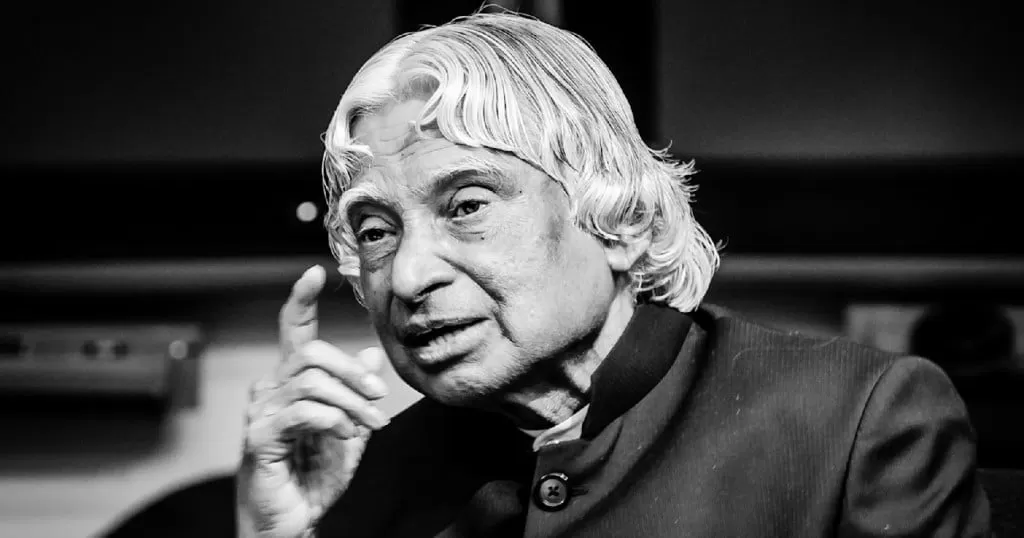The Missile Man of India
Know the great man a little more
Dr. APJ Abdul Kalam
The aerospace scientist, Dr. Abdul Kalam, had a meteoric professional career. Born in October 1931 in a family of modest means in his ancestral house on Mosque Street, Rameswaram, in South India, he was one of several children of parents who had no formal education to speak of.
However, he has by hard work, determination and total commitment to his field, risen to the very high position of Scientific Advisor to the Defence Minister of the Government of India and Secretary to the Department of Defence Research and Development Organisation (DRDO).
He was more or less an average student. However, thanks to his parents and his teachers, he developed a value system, character, integrity, dedication and commitment that are rare today.
His father was a pious Muslim, and one of his best friends was the high priest of the Siva temple nearby. They used to have discussions on religion and other topics, as a result of which, the young Kalam developed a catholic and cosmopolitan outlook. In fact, his best friend in the local elementary school was the son of the high priest of the Siva temple.
Kalam was lucky that both at the local school and high school at Ramanathapuram, he had very dedicated teachers who influenced him and moulded his personality a great deal. His teachers at school inculcated in him self-esteem and confidence and taught him the powerful roles played in life by three factors: desire, belief and expectation.
Physics was a subject that fascinated him and he slowly began to realise that through science, spiritual enrichment and self- realisation were possible. He also developed in interest in subjects like cosmology and science in general.
At the age of about 26, Dr.Kalam graduated from MIT. He was then selected as a graduate aeronautical engineer at the Hindustan Aeronautics Limited at Bangalore, and placed in the engine division, dealing with the overhauling of both piston and turbine engines.
He applied for a career in the Indian Air Force (IAF) and also for a job at New Delhi at the Directorate of Technical Development and Production (Air) (DTD&P) of the Ministry of Defence. He was quite disappointed not to be selected for the job and went to Rishikesh.
Dr. Kalam then returned to New Delhi and was told at the DTD&P (Air) that he had been selected for the post he had applied for. In fact, the letter of appointment was given to him then and there. Dr.Kalam joined DTD&P (Air) in 1958 and worked on a project dealing with supersonic target aircraft.
In 1975, ISRO became a department of the Government of India with the setting up of the Department of Space (DoS). In Prof. Dhawan, the Chairman of ISRO and Secretary of DoS, Dr.Kalam found a very knowledgeable person. Both of them believed in employing proven technologies rather than take the risk of going for technologies under development and hence not yet proven.
After about eight years of serious effort involving many institutions, the first experimental launch of SVL-3 took place on August 10, 1979. It proved to be unsuccessful. A great deal of gloom descended on all the scientists, engineers and others who had toiled hard on the SLV-3 project.
Nobody was more dejected and unhappy than Dr.Kalam. In fact, he was broken-hearted. Luckily, both Dr. Brahm Prakash and Prof. Dhawan were supportive and consoled and encouraged him to try and try again till he succeeded.
After critically examining all possible reasons for the failure, a second attempt was made on July 18, 1980. This time it was a grand success. Those who had been down in the dumps a year earlier were now on top of the world.
Today Dr. Kalam is the only person from the Indian scientific community to get the nation’s highest civilian award.
The second event that needs highlighting is Dr.Kalam’s contribution to the successful nuclear explosions by India in May, 1998. Although Dr.Kalam is not a nuclear scientist, he, as the head of DRDO was closely associated with this development.
We salute The Missile Man







